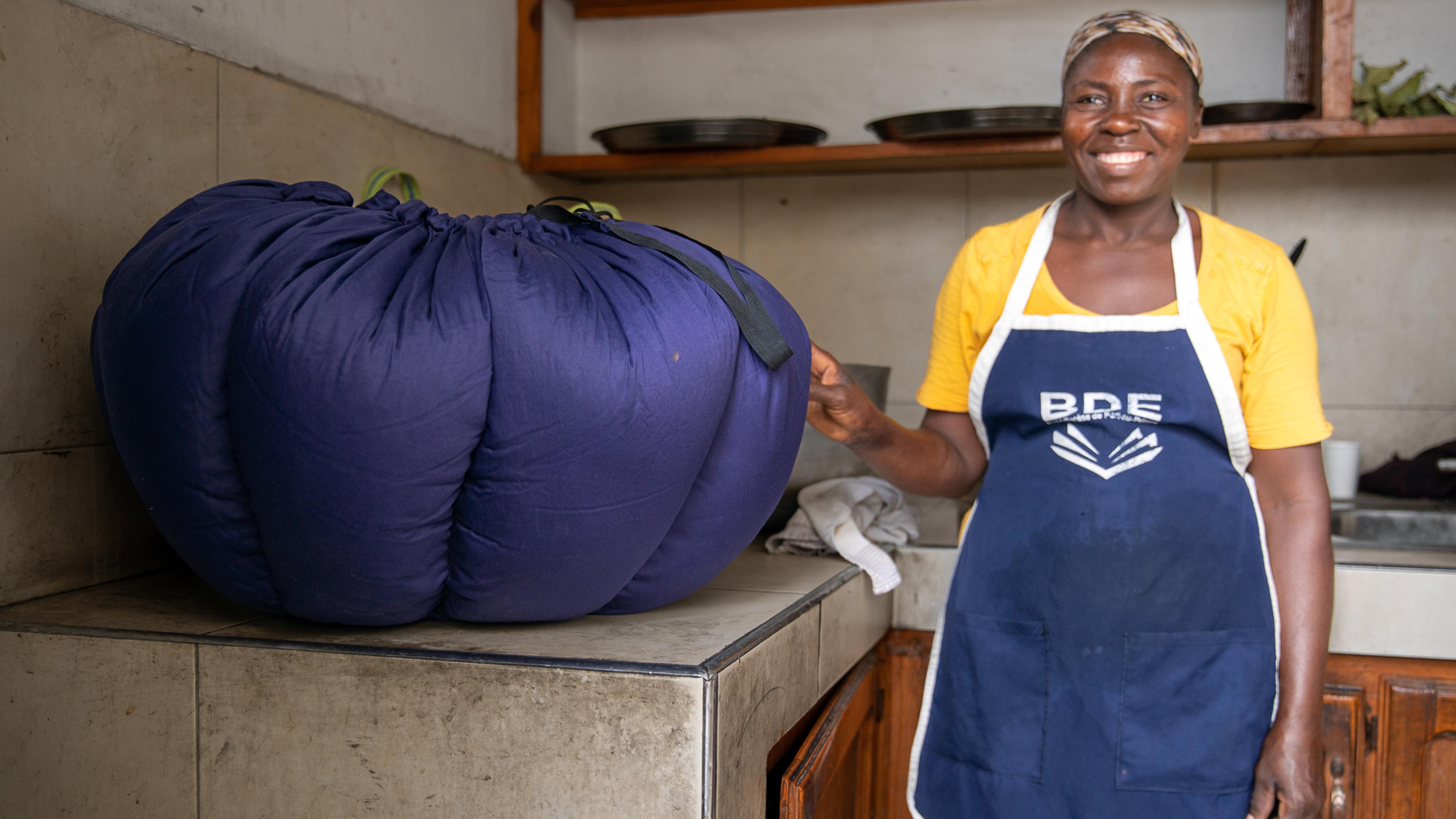Cooking up change in Haiti
 © Theresa Piorr
© Theresa PiorrWhat is the challenge?
In the face of a fragile economic situation and a complex security context, Haiti is grappling with severe food insecurity, with nearly half of the population going hungry. Haiti is amongst the five countries in the world with more than 10% of the population (1.8 million) in food insecurity category “emergency”. Rising food insecurity is aggravated by inflation, with the annual rate spiking to almost 50% in 2022.
With this protracted economic and social crisis, humanitarian needs in Haiti have dramatically escalated, requiring urgent interventions to address emergencies, while supporting the longer-term development of the country. World Food Programme’s (WFP’s) school meals programme is an essential component of this effort. During the current school year, WFP is providing hot and nutritious meals to 460,000 school-aged children, which, in some cases, serves as their sole source of daily sustenance.
Haiti is also one of the most vulnerable countries in the world to climate change. Furthermore, the country lags way behind in terms of energy efficiency, with close to 95 percent of the population still using firewood or charcoal as its main source of energy. This is also true for schools, where these fuel sources remain the most widely used to cook meals for children. These traditional cooking methods are not only more expensive than gas, but they also have an adverse impact on the environment, while also exacerbating deforestation. Finally, cooking with firewood or with charcoal can also produce negative consequences on cooks’ health (most of whom are women), causing respiratory problems and life-threatening diseases.
Humanitarian and environmental crises, like the ones witnessed in Haiti, often exacerbate gender inequalities, with women disproportionally suffering from issues related to sexual violence, lack of access to healthcare and economic vulnerability. This project aims to be gender-transformative, by bringing an innovative solution to the problem of female cooks’ health and security, while at the same time improving energy efficiency and reducing costs. Clean cooking presents a compelling and economical approach to tackle the pressing challenges of climate change, nature loss, pollution and gender inequality.
Despite the existing availability of clean cooking solutions, they have not been widely adopted due to several barriers, including to the lack of access to clean cooking technologies, limited funding opportunities, as well as cultural and behavioural factors. With the support of HIP Norway, WFP’s Clean Cooking Project will improve women’s cooking experience across more than 285 schools and 1,000 households
What is innovative about the project?
The Clean Cooking Project presents a compelling and economical approach to tackle the pressing challenges of climate change, pollution and gender inequality through the promotion of use of Heat Retention Bags (HRBs) and training on clean cooking. This clean cooking method is a culturally accepted, low-cost and locally developed technology.
HRBs are an innovative tool that has been designed and piloted by WFP in Haiti; and the model is being duplicated in Chad and Nigeria. HRBs are heavily insulated bags that maintain high-temperatures and act as a slow cooker. The benefits of this cooking method are multifaceted: it reduces indoor pollution by 60 percent; incentivises the use of gas, which reduces energy costs by 20 to 30 percent and reduces fuel needs by 70 percent; it supports the local economy and the economic empowerment of women; it contributes to depolluting the environment, since HRBs are made of recycled plastic and it reduces the time needed to collect wood and the consequent exposure to violence and insecurity.
HRBs have already been used and proven very successful in other countries, but in the context of Haiti, they are particularly innovative. Prior to WFP’s pilot implementation, HRBs did not exist in the country and other tested clean cooking methods did not reach implementation scale. One of the aspects that makes the project in Haiti so visionary is its focus on the local economy. To produce HRBs, WFP relies on local industries, both for the collection of materials (recycled plastics) and for their assembling. In addition, by adopting a women-centric approach, with a special attention on capacity building, WFP aims to improve the wellbeing of female participants by expanding their professional opportunities and ensuring their safety.
What are the expected outcomes?
WFP’s ambition is not only to provide all the schools benefitting from the School Meals Programme with HRBs, but also to promote their use at the household level.
This expansion is crucial to support the empowerment of women, promote greater energy efficiency, healthier cooking practices, recycling habits, and reduce deforestation. Through its Clean Cooking project, WFP will continue to target the most vulnerable women. The provision of HRBs, whether as part of the school meals programme, or through emergency and resilience interventions, aims to increase food security while focusing on capacity strengthening and the protection of livelihoods. This project not only entails immediate cost savings and health benefits, but it will also allow households to become more resilient to shocks, ensuring their capacity to cook meals in times of crisis.
Who are the project partners?
The project is led by WFP, who have partnered with the Clean Cooking Alliance, ECSSA and Diquini Manufaturing.